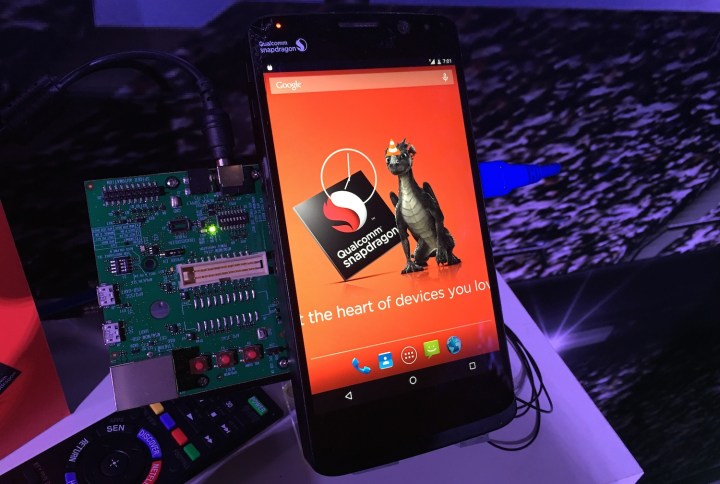
Though no specific reason was given, Samsung’s use of the 14-nanometer manufacturing process is the biggest advantage it has over competitors such as TSMC. This allows lower cost, smaller chips that offer better battery life to be made.
The Snapdragon 820 is highly anticipated, and crucial to Qualcomm, following the issues surrounding the Snapdragon 810. Though Qualcomm still denies the overheating allegations, the Snapdragon 808 was often chosen instead, while others decided to wait for the Snapdragon 820. In Samsung’s case, it powered all of its 2015 Galaxy devices with an in-house Exynos chip, which forced Qualcomm to lower its sales forecast. Could awarding the Snapdragon 820 contract exclusively to Samsung be somehow related?
It’s certainly worth plenty of money, with Reuters putting the figure at a massive $1 billion. However, rumors have spread about Qualcomm’s shift away from Taiwanese manufacturer TSMC and towards Samsung, for several months. According to this report in April 2015 by Extreme Tech; Nvidia, Marvell, and MediaTek may have also held talks with Samsung, but nothing has been made official in this area since.
TSMC won’t want to lose Qualcomm’s business, and apparently accelerated development of newer chips during 2015. However, it is not all bad news for TSMC. There are rumors Apple will contract the manufacturer exclusively for the iPhone 7 chipset. Apple currently splits the manufacturing between TSMC and Samsung for the iPhone 6S and 6S Plus.
The first Snapdragon 820 phone has already been revealed, and in the next few months we suspect quite a few more phones will launch with the new processor. If the plan goes ahead, Samsung’s going to be very busy.


